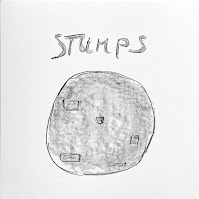Calenture and Light Leaks
(Weekertoft, 2019) *****
The Dogs of Nile (Weekertoft, 2019) *****
First, of course, there’s
Evan Parker. For some 50-odd years, Parker’s helped define the sound and shape
of avant-garde/free jazz and improvised music. The great success of Parker’s
music is how poetic his playing is; if free jazz began its life around 1960,
then Parker was one of the early Homeric musicians to define and speak its
language. His playing has evolved into bright, occasionally gnomic motifs,
often strung together by flowing recursions blown in his effortless circular
technique. Yet, if Homer’s long-puzzled-over “wine-dark sea” has given us no
better understanding of the color of the Aegean, then Parker’s literal notes
and techniques face the same challenge: does a line-by-line or note-by-note
reading get us closer to the music?
And now here’s Paul G.
Smyth, one of the great contemporary pianists—regular readers know me to be a champion of
his music. There’s a category of pianists who play extremely well, and there’s
a category I think of as pianists who speak in piano. For peers, think
Alexander Hawkins, Angelica Sanchez, Aruán Ortiz, Kaja Draksler, Kris Davis,
Matt Mitchell, et al., the Joycean modernists of free jazz. Smyth is both among
these players, and slightly to the side of them, like David Virelles or Eve
Risser. His recordings thus far on his Weekertoft label have been either solo
or duos, and, like both Virelles and Risser, highly exploratory and
experimental.
It’s a bit cheeky to put
Smyth among a group of Joycean pianists, but I mean it like this: the group of
players above and their many peers have taken a form—free jazz or free
improvisation—that evolved over decades and are now playfully, delightfully,
intellectually refining and subverting it, sometimes through radical interpretation. Where Joyce playfully relocated Homer’s
wine-dark sea to Dublin Bay, transforming it into the snotgreen sea (or, more
fittingly, the scrotumtightening sea), Smyth plays lovingly with Parker, as he
alternately echoes, conducts, and even at times appears to ruminate on Parker’s
music.
These two albums newly
available from Weekertoft catch Parker and Smyth at two different venues, with
two very different sound worlds. Calenture and Light Leaks was recorded
in March 2015, at the National Concert Hall in Dublin,
Ireland. It’s a beautiful album,
with really fantastic production. Parker’s tenor sax sounds warm and full, and
the details of Smyth’s playing are fully rendered. After opening with some
dramatic duo recitations, the duo settles into a lengthy, patient
improvisation. During the latter half of “Calenture and Light Leaks,” Parker
and Smyth both perform solos, furious, spiraling solos that call back to
earlier moments of dialogue with references and ellipses that constantly pull
you back in. The full set takes its time, building and burning and crashing,
when all is said and done, into a tremendous round of applause. I can only
imagine what it felt like in person, though the thrill of the room feels duly
captured here.
The Dogs of Nile was recorded 2 years later, in March 2017 back
in in Dublin. Parker is on soprano this time, and the
performance is packed more densely. In between both albums stood Brexit, which
Parker surprisingly supported, explaining his vote was rooted in his suspicions
of the EU more broadly. Thus, here he was in 2017, in Ireland, playing a ferocious
set. The sound on The Dogs of Nile is slightly less rounded, but it’s
not lacking in passion or technique. In this way, it’s almost the Odyssey
to Calenture’s Iliad. Or, it’s Finnegans Wake to Calenture’s
Ulysses. Or, I’m pushing these comparisons too far, and the two aren’t
necessarily related, Janus-faced, but are nonetheless fantastic albums of
top-notch free improvisation. Should I then heed my own words, let the music
speak for itself, and end here? Yes I will yes, and exit under cover of night.
Available on Bandcamp and
worth every pound, dollar, drachma, or whatever’s rattling around in your
pockets.


















6 comments:
Writing interestingly about this type of music is a challenge at which some writers fail badly. This review is both an intriguing bit of descriptive wordsmithery on its own plus it makes me want to hear the discs. I've talked with EP at concerts before and he's a refreshingly jolly type of person, at least to me. I'd like to think he'd enjoy reading this.
Fantastic review Lee, really nicely done.
Thanks! Improvisation is so tricky to describe meaningfully, and especially when you're talking about a genius-level player like Evan Parker.
What a great "Joycean" albums and review! Thanks...
"In between both albums stood Brexit, which Parker surprisingly supported, explaining his vote was rooted in his suspicions of the EU more broadly."
"Surprisingly", really ?!
European Union is NOT the Improvisation European Scene !
I feel comforted (in my love for EP's music and in my own political ideas) knowing that EP is a musician able to THINK !
More info about EP's Brexit :
https://twitter.com/europejazznet/status/725697708770611200
Post a Comment